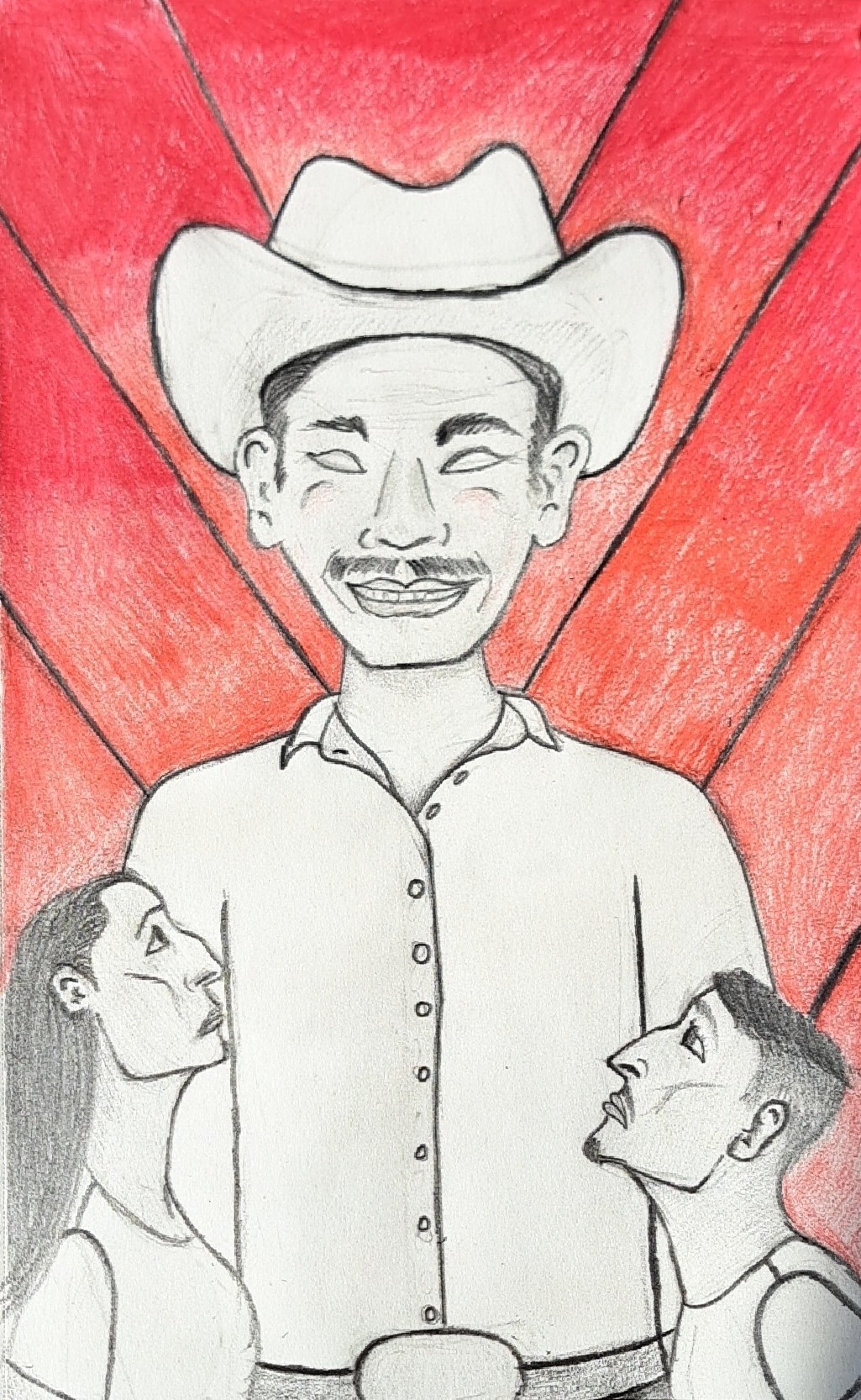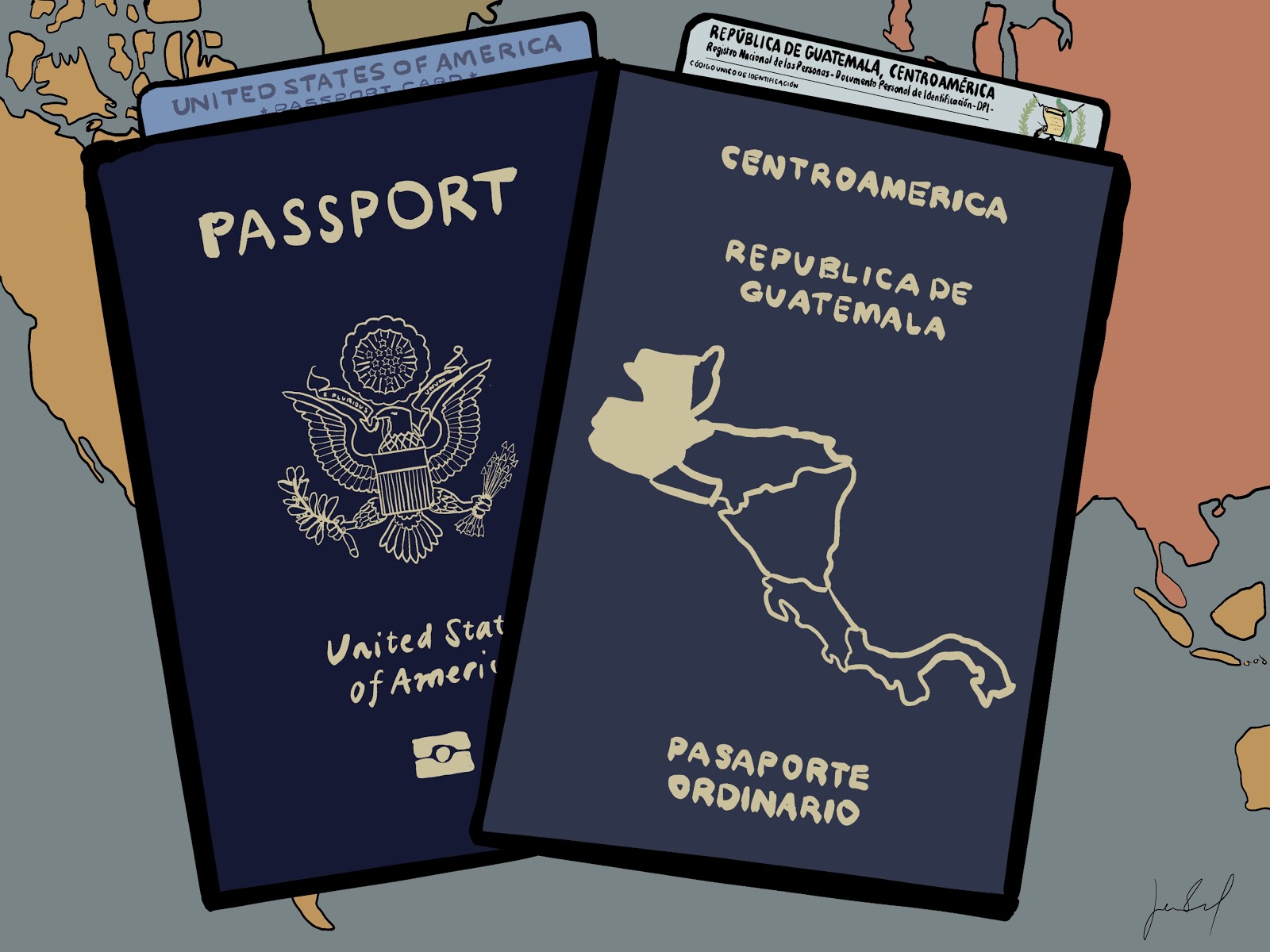Remembering Jesús Ociel Baena Saucedo, Mexico’s First Openly Non-Binary Magistrate

Visual by Melissa Morales
On the night of November 13th, 2023, thousands gathered to march after the alleged murder of Jesús Ociel Baena Saucedo (they/them/elle), Latin America’s first openly non-binary magistrate. Across Mexico, crowds were heard yelling: “¡Justicia! ¡Justicia! ¡Justicia!” and “¡Asi se ve la furia nb!” In English, the chants translate to: “Justice! Justice! Justice!” and “This is what non-binary fury looks like!”
Baena broke barriers in October of 2022 by being the first openly non-binary person to assume a judicial position not just in Mexico, but in Latin America as a whole. A few months later, they became one of the first people to receive a Mexican passport listing their sex as non-binary. Their outspokenness and bold display of pride have contributed to great progress towards LGBTQ+ acceptance by the general public in Mexico. Baena has stated, “Las personas no binarias somos aquellas que no nos asumimos ni como hombres ni como mujeres, y la que pueda, reina.” Their definition and representation of non-binary both work to help those across LATAM understand a concept that is often dismissed as “too complicated.”
In addition, Baena also helped fight against LGBTQ+ stigmas through their discussions on sex work and self acceptance. Baena was often asked why queer people were only seen in sex work. Instead of shaming sex workers, Baena highlighted how queer people are only socially allowed to exist as sex workers, refuting the notion that queer people only want to be sex workers, and furthermore stated that they are looking for somewhere they can be accepted without judgment. Their position as magistrate was a way they demonstrated that queer people have a right to exist as themselves in whatever career path or lifestyle they choose. Baena also explained their process in realizing they were non-binary. After identifying as a homosexual since they were 18, they realized they were non-binary when they did not know whether to run for office as a male or female, when they felt they did not fit either identity. By sharing their story, they can provide comfort to Latines struggling with coming to terms with their identity. Their experiences also allowed non-queer people to learn about the queer community, creating awareness and, hopefully, acceptance.
A February interview, held just last year, showcases Baena’s infectious and vibrant personality. Decked out in rainbow attire, a scarf, and a hand-held folding fan (a token of queer culture), they are seen walking around an office and answering the questions of the interviewer, Eduardo Iniesta. The interview is meant to bring awareness as to what being non-binary means, and how gender neutral language can be implemented in Spanish, a gendered language. One of the questions included: “Magistrade, ya me entró la duda. ¿Porqué encabrona tanto a la gente el lenguaje incluyente?” (“Magisrate, I’m curious. Why does inclusive language make people so angry?”) Baena stated:
“El lenguaje incluyente particularmente el no binario, molesta bastante a los grupo mayoritarios porque visibiliza a las minorías. Y las minorías hoy estamos exigiendo que se nos dé espacio y que se nos dé la voz… Y recuerda que el lenguaje incluyente se utiliza exclusivamente para pronombres. No se dice ‘zapate,’ se dice ‘zapato.’ No se dice él/ella, se dice elle. Y la que soporte.”
“Inclusive language, particularly non-binary language, bothers majority groups a lot because it makes minorities visible. And minorities today are demanding that we be given space and that we be given a voice… And remember that inclusive language is used exclusively for pronouns. You don’t say ‘zapate,’ you say ‘zapato.’ You don’t say he/her, you say they/them.”
This interview, among many others, as well as their judicial position and their nationwide influence, were breakthroughs for the LGBTQ+ community. In a society where LGTBQ+ people are consistently silenced through stigmas, laws, and, at times, outright murder, having a public figure so unapologetically themselves in a government setting is a much needed advancement.
However, their public appearance has created a great danger. For
months, the magistrade was receiving death threats, to the point that they had to seek special security protection. It is no secret that Latine LGBTQ+ people face an insane amount of risk simply for being openly queer. Throughout the years much progress has been made, like banning conversion therapy, legalizing same-sex marriage, and implementing anti-discriminatory laws nationwide. However, these are simply not enough. Mexico’s traditional and predominantly Catholic culture has created environments in which queer people cannot always comfortably exist within the same public sphere as non-queer people. Statements like “You can respect it, but it goes against God’s ways, it is unnatural and wrong” continue to uphold these environments. This mindset was heavily embedded during General Porfirio Diaz’s first rule of Mexico (1877 to 1880) during which he allowed “the Catholic Church to regain some of the statute it had lost during the previous Liberal administrations.” As a result, the Catholic Church implemented anti-queer ideologies as Mexican politics, culture, and society formed. These ideologies are taught at a very young age, at times hindering queer people from coming out, expressing themselves, and reaching out for help when they need it.
Another factor fueling the feeling of vulnerability among queer people in Latin America is machismo, a strong and often toxic expectation of masculinity. Machismo is harmful because of the intense focus it places on domination and power. It also strongly emphasizes maintaining gender roles, especially among men, and expects men to be non-emotional, show no weakness, and be the provider for the family. This, plus the violence that results from the hyper-masculine and power centered culture, therefore puts queer people in significant danger. Studies have shown that the high rates of femicides (murder of women for being women) and LGBTQ+ violence are a result of machismo. Queer people defy the gender norm set by machismo. Unfortunately, their bravery makes them more susceptible to facing aggression and violence. Between 2018 and 2022, there were 543 recorded violent deaths of LGBTQ people. And, across Latin America and the Caribbean, 4 LGBTQ+ people are murdered daily. With most of these murders taking place at home, these are both hate crimes and interpersonal disputes.
It is with great sadness and grief that Baena faced the same fate. On November 13th, 2023, Baena and their partner, Dorian Daniel Nieves Herrera, were found dead in their Aguascalientes home. Authorities first announced that there were no signs of third party involvement, stating they did not know yet if it was a homicide or an accident. Jesus Figueroa Ortega, Aguascalientes state attorney general, said they believed the incident was a murder-suicide, resulting from an interpersonal dispute. At the scene, investigators also found a razor blade. Authorities believe Nieves killed Baena before taking their own life. Baena was found with 20 wounds to their body, including a slit along their neck. Their families and community were quick to call for a deeper investigation, for close family members never suspected violent tendencies in their relationship.
Advocates fear that Baena’s death will simply be dismissed by authorities, further ignoring the endangerment that all queer Latines live in. By not providing an in-depth investigation into the death of one of the most important queer figureheads of the 21st-century, Mexico is continuing to feed that same dangerous and conservative climate that queer people cannot seem to escape. Three months have passed since the death of Baena and Nieves, and authorities have closed the case, stating it was a murder-suicide, not a hate crime. But, advocates like Alejandro Brita, director of the queer rights group Letra S, and Baena’s father disagree with the case results. Brita claims that prosecutors often have their own prejudices against the queer community, causing cases like these to be belittled. Baena’s father also challenges authorities, stating that “[it] would be a shame to let this justice system make a judgment that is not correct and that the majority do not believe it.”
Despite the case being closed, Jesús Ociel Baena Saucedo will remain in the memories of all the Latines that they helped represent, in the chants and vigils held for them, and in the barriers they broke. They fought for a place where queer people are not represented, and they made sure to highlight queer and non-binary struggles, as well as the beauty of being queer. The beauty of reclaiming your identity, the beauty of community, and the beauty of challenging societal norms. Baena was a figurehead for millions, and their absence in the physical world will remain heavy in many hearts.









Leave a Reply
Want to join the discussion?Feel free to contribute!